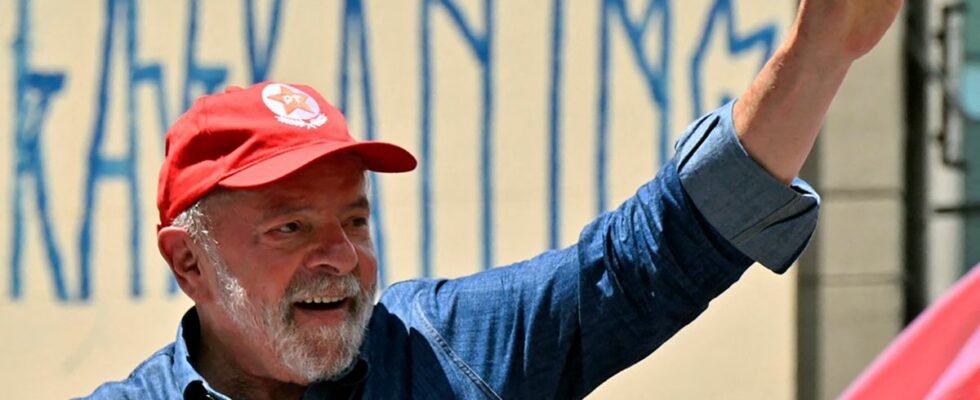Many said he was politically dead when he was imprisoned for eighteen months for corruption. But, at 77, Lula, stainless icon of the Latin American left, hopes to win a third term at the head of Brazil this Sunday. Favorite for months in the election against outgoing far-right president Jair Bolsonaro, despite a narrowing gap, Luiz Inacio Lula da Silva can hope for a spectacular comeback.
Former President Lula, who had an extraordinary destiny, has come a long way. Convicted of corruption in the biggest scandal in the history of Brazil, “Lavage express”, he was imprisoned from April 2018 to November 2019. The leader of the Workers’ Party (PT) has always said he is a victim of a political conspiracy that allowed Bolsonaro to be elected to the presidency in 2018 when he was the big favorite.
Lula wants to do “better” for the Brazilians
Lula had seen the horizon clear in March 2021 after the cancellation or prescription of his convictions by the Supreme Court which allowed him to recover his political rights, without exonerating him for all that. For the UN Human Rights Committee, the investigation and prosecution of Lula had violated his right to be tried by an impartial tribunal.
Today, twelve years after leaving power with a stratospheric rate of favorable opinions (87%) after two terms (2003-2010), Lula wants to do “better” for Brazilians and refutes any idea of revenge. Lula remains perceived as “close to the people” and is still much loved, especially in the poor regions of the Northeast, his historic stronghold. But he is also hated by some Brazilians for whom he will forever embody corruption. Jair Bolsonaro had capitalized on the hatred of the PT to be elected in 2018.
Nothing predisposed Lula to such a destiny, this youngest of a family of eight children, born on October 27, 1945 in a family of poor farmers in Pernambuco (north-east). As a child, Lula shined shoes. He was seven years old when his family moved to Sao Paulo to escape poverty. Itinerant salesman then metalworker at the age of 14, he lost his left little finger in a work accident.
Brazil’s first working-class head of state
At 21, he joined the metalworkers’ union and led the major strikes of the late 1970s, in the midst of the military dictatorship (1964-1985). Co-founder of the PT in the early 1980s, he ran for president for the first time in 1989 and narrowly failed. After two further failures, in 1994 and 1998, the fourth attempt was the right one, in October 2002. He was re-elected in 2006.
The first Brazilian head of state to come from the working class, he implemented ambitious social programs, thanks to the years of growth driven by the boom in raw materials. Under his two terms, nearly 30 million Brazilians have been lifted out of poverty. Lula also embodied a country that opened up to the world, and gave Brazil international stature with, in particular, the World Cup in 2014 and the Olympic Games in Rio de Janeiro in 2015.
Idealistic but pragmatic, Lula is a past master in the art of forging sometimes unnatural alliances. For this Presidential, his running mate is a centrist technocrat able to reassure economic circles: Geraldo Alckmin, his opponent in previous elections.
Cancer survivor and remarried
His attempt to return to business as minister of his runner-up, Dilma Rousseff, in March 2016, was a bitter failure, as was her dismissal in August. In October 2011, he suffered from laryngeal cancer. In February 2017, the ex-president suffered an intimate ordeal with the death of his wife Marisa Leticia Rocco. But Lula found a new love, Rosangela da Silva, nicknamed “Janja”, a militant sociologist of the PT, 21 years his junior, whom he married last May. She criss-crossed Brazil with him, taking an active part in his campaign.
Lula, charismatic tribune with a hoarse voice, traveled the immense Brazil, equipped with a bulletproof vest. He delivered a fierce and rarely courteous duel to his enemy Bolsonaro, and is waiting to see, this Sunday, if he can make people forget the Petrobras scandal and once again govern 215 million Brazilians hit hard by the relative weakness of the economy, inflation and hunger for 33 million of them.

